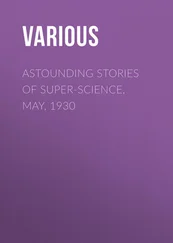Was Baba Mila living a different life now, as a little girl? Maybe somewhere exotic and warm, like Brazil. And did she remember Sonya, her only granddaughter? Deda Misha now lived with another woman, whom he’d met in a village outside Kiev. She was nice, too.
“We sat with Makin, ate the plov and drank tea, and talked about the upcoming winter,” Deda Misha went on. “He told us he was writing new songs he’d like to record. Of course, he was forbidden access to a recording studio. He didn’t have to say it. Baba Mila got your father out of his crib. He’d just woken up and was preparing to start the siren. ‘Look at those long eyelashes,’ Makin said and shook Tolik’s chubby hand. He sang one of the famous old Russian songs, ‘ Dance and sing, beautiful creature, and while you dance, I’ll laugh. And while you laugh, I’ll laugh with you, but inside I am burning .’ Makin’s voice reached into my chest and wrung out my soul. By the time he finished, your father was rolling with laughter, and Baba Mila was crying. Makin himself was almost in tears. It is a love song, like most songs.
“Since that first tea performance, I began thinking nonstop about Makin’s desire to record. We had a national treasure in our hutches, staring at the snow through his window, wasting away. We could help him resume work as a singer. That would be valuable both for him and for the people of Kolyma. You can’t fight destiny, but you should always try to befriend it — that is my motto. I knew everyone in Magadan, from the regional head of education to the chief veterinarian at the poultry plant, and my engineer’s mind began to work, calculate, draw connections, tak tak tak tak . At that point, Makin was employed at the library, typing up catalog cards and shelving books.
“Me, by the way, I understand music.” Deda Misha crossed his arms on top of his hernia and nodded. “When I was at the Petroleum Institute back in Grozny, I sang in a men’s a cappella group. I also played drums in a band. Musical accompaniments for banquets, weddings, funerals, groundbreaking for a new factory — for a small fee and a piece of kielbasa. You come from a very musical family, Sonya. Baba Mila sang, too, arias from Prince Igor, and played piano.”
“As good as Mama?” Sonya said, on purpose.
Deda Misha pretended not to hear. “I decided to take Makin under my wing and invited him to sing at our Petroleum Workers’ Club,” Deda Misha carried on. “He agreed with pleasure. When I announced that we would have a special guest as a closing number in our musical evening in the person of Comrade Vadim Andreevich Makin, the same famous Makin, my otherwise respectable workers began to holler like monkeys, demanding Makin immediately and Makin all night. Those ensembles scheduled to perform before Makin, including my a cappella group, gladly stepped down. Maestro was in the house.
“Makin marched toward the piano in an impeccably ironed black suit. By the way — a curious detail for you — instead of sheet music, he clutched a small rubber cat to his chest.”
“A cat!” Sonya exclaimed, about to tell Deda Misha that Oleg, too, had mentioned a toy cat at the party. She caught herself in time. She wanted to hear the end of the story, after all.
“Two hundred people held their breath as he began to sing. He sat at the piano half turned to the audience, emphasizing certain phrases with a pitch of his body or a movement of his hand. I remember the first song. ‘ When youth leaves, the nights seem longer … What could’ve been said before, cannot now be said. When youth leaves, one loves differently. When youth leaves, one loves even stronger .’ His voice was spellbinding. One forgot certain details of his biography as long as this voice poured and poured. Even now I remember with goose bumps. I felt like my soul was getting undressed in front of everyone.” Deda Misha tugged at the skin of his Adam’s apple. “A part of me even wanted him to stop. Such is the power of art — yes, a sudden, gripping power. It was too late to try to contain him. He had gone out of orbit … in more than one way.
“He sang until he was about to collapse — old favorite songs and new songs in front of an audience for the first time. There was so much cheering, so much ‘Bravo!’ and ‘ Bis !’ that the police showed up. They stared at Makin like at a tropical bird, but they enjoyed his singing, too. They didn’t even ask to see anyone’s papers, which was the bulk of their duties, you know.” Deda Misha chuckled.
“I felt tremendous satisfaction in bringing Makin to the people. I developed the petroleum supply infrastructure that powered the extraction of valuable natural resources in Kolyma: gold, uranium, tin, fish, crab. In the arts sphere, Makin was our gold. I was building my family. Your aunt Angela would be born soon. The next fifteen years were the happiest and most fruitful time of my life.”
Deda Misha took off his glasses and rubbed his eyes, smiling into the past.
“I organized a few more concerts for Makin at our Workers’ Club and found him his own piano accompanist in the person of Galochka, one of our accountants. Remember this name, Sonya, for our story. Makin himself said that though she played too loudly, as if trying to outplay the racket of dishes in a restaurant, she had the soul of a real musician. Makin sang for free, of course, for the rehabilitation of his reputation.”
“What do you mean, ‘rehabilitation’? Like after an accident?”
“What are they teaching you in your English Lyceum? American slang? Rehabilitation is for those who were sent to the Gulag or executed without a good reason. Amnesty. The official restoration of civil rights and a good name.”
“Oh, right.” Sonya didn’t remember studying that at school.
“I talked to Gumenyuk (a Ukrainian, by the way) — he was the head artistic producer at the Magadan Musical and Dramatic Theater — about organizing Makin concerts there. By the way, he told me that the imprisoned artists had performed at the theater. All the local party bosses and MVD apparatchiks sat in the front row with their wives, while the guards with machine guns sat in the wings and in the balcony and took the performers back to the camps before the applause died down. Makin performed, too. He was the biggest celebrity in Kolyma.”
“This was at our theater?” Sonya said. “Are you sure?” She thought about all the portraits in the theater’s hall; the biggest one was of Frenkel, the director, staring into middle distance. And the black-and-white photographs of old productions along the grand staircase with the red carpet held down by metal rods. The actors forever frozen in the heat of the fight or a love confession — were some of them prisoners? Would she be able to tell if she looked very carefully next time?
“Same theater, probably before I got to Magadan. I’ve never seen any armed guards at a concert. But now Makin would be returning as a free man. The theater was in a hole: intrigue backstage, boredom onstage. The socialist realism plays from the capital weren’t popular with Magadan folk. We brought in Makin, and he sold out every performance, even the seats in the orchestra pit. He saved the theater. The following year he was hired full-time, though without any media fanfare or the northern coefficient. Makin didn’t mind, he was happy to perform again. He also had a fan in the person of Konstantin Kazakov, the director of the regional guild of radio broadcasting, and this Kazakov began recording him secretly in Magadan’s radio studio. I found this out only recently, through the grapevine of old acquaintances.
“It was brave of Kazakov. Makin was no longer a prisoner, and Stalin was dead, but there was still the unspoken ban on Makin. It was brave of me, too. If the KGB rang my doorbell at three at night and asked me why I was so interested in Makin’s career, I would have told them it was for the benefit of the Soviet people. It was the truth. If they’d asked me if I, how to say, was of a similar persuasion as Makin, I’d have told them: I have a beautiful wife and healthy children. There isn’t a single stain on my reputation.”
Читать дальше
Конец ознакомительного отрывка
Купить книгу












